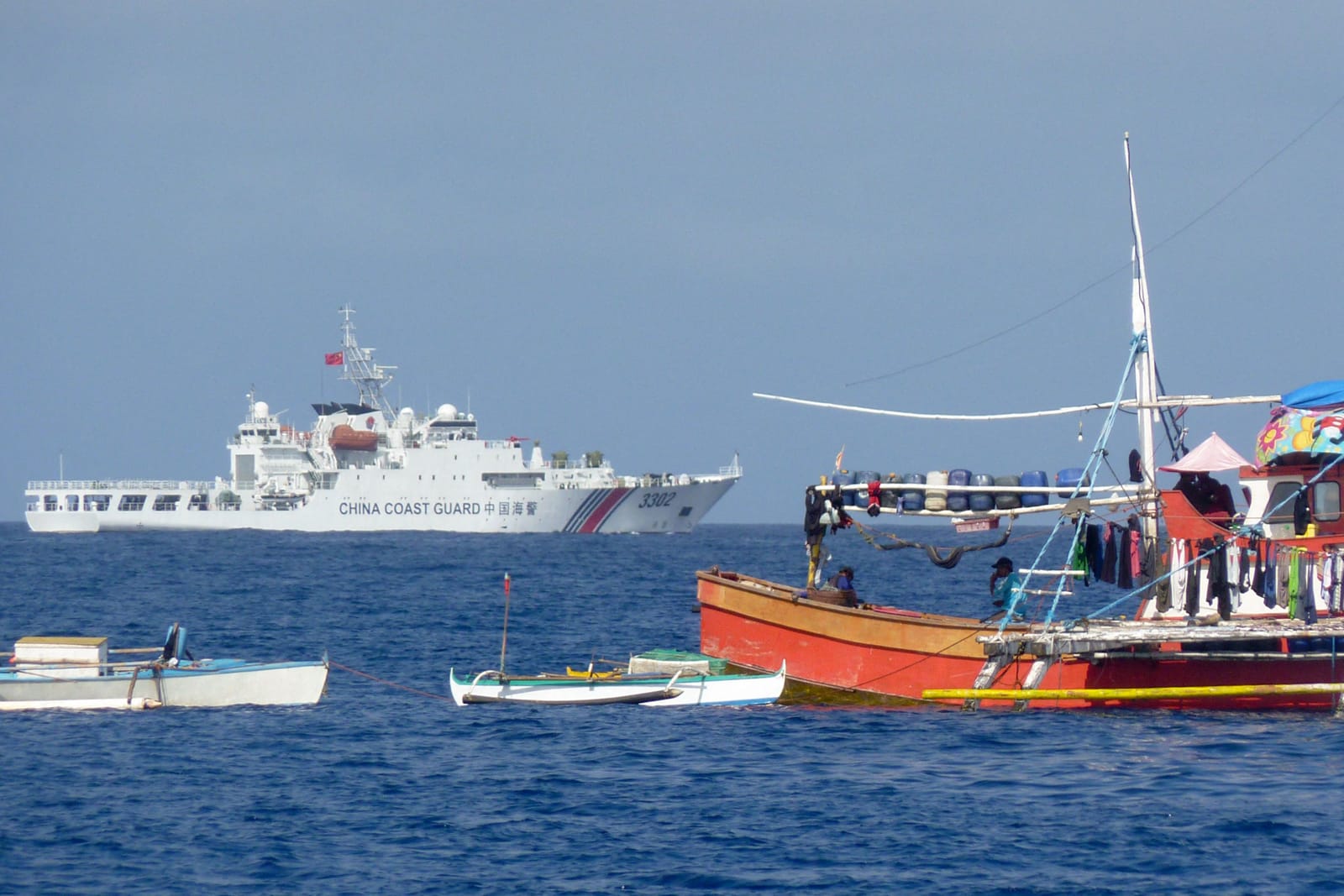Australia’s decision to go ahead with the purchase of nuclear-powered submarines from the United States and United Kingdom reflects a judgement that China, and more particularly Chinese naval power, represents a serious threat to Australian interests. A prominent reason for this judgement has been China’s pursuit of territorial claims in the South China Sea, motivated by the desire to exploit resources including oil, gas and fisheries.
In pursuit of this objective, China has undertaken a variety of measures. These include militarising several islands and creating new artificial islands on mostly-submerged reefs. China has continued to assert its territorial claims in the area, particularly against the United States Navy, which seeks to assert its own purported right to “Freedom of Navigation Operations”. There have been repeated near-collisions over many years as a result of aggressive patrolling by both sides.
There are, however, good reasons for thinking that the danger of major conflict over South China Sea resources has already passed, if indeed it was ever real. China’s actions in this area should not be understood as a serious attempt to use naval power to capture control of valuable resources.
The question of fisheries can be dispensed with quickly. Disputes over fisheries, between nations, or between groups of fishers, are frequent, and often involve resorting to violence. The “Cod Wars” of the 1950s through to the 1970s between Iceland and the United Kingdom ended with a single (accidental) death. The outbreak of piracy off the coast of Somalia, which became a major crisis between 2000 and 2010, was sparked initially by disputes about overfishing of Somali resources by foreign fishers. Relations between Indonesia and Australia were strained for some years by Indonesian fishers operating within Australia’s exclusive economic zone.
But none of these disputes came close to generating actual naval warfare. Fish simply aren’t valuable enough to risk the loss of warships costing tens of billions of dollars.

Surprisingly enough, the same appears to be true of oil and gas. Despite its belligerent rhetoric, and aggressive naval gestures, China has taken little or no effective action to prevent other nations from exploring for and extracting oil and gas in disputed parts of the South China Sea, particularly where rival claims appear stronger. Vietnam, Indonesia and Malaysia have all developed resources on the periphery of the “Nine-Dash Line”. Only the Philippines seem to have been deterred effectively.
An obvious reason is that, despite some hyperbolic claims, the resources in the region aren’t all that valuable. Like fisheries, they are worth a quarrel, but not a war. Vietnam’s state-owned PetroVietnam produced about 10 million barrels of oil last year. That implies total revenue of around US$700 million at current prices, most of which would have been spent on extraction costs. China’s own Hainan gas field is currently yielding about 20 million cubic metres a day. The price of gas is notoriously opaque, but it is unlikely that this amounts to more than US$1 billion a year after extraction costs. That’s about the annual operating cost of a single aircraft carrier in peacetime.
So, the resources of the South China Sea aren’t all that valuable. More importantly, the days of oil and gas as critical resources are drawing to a close. The transition away from oil and gas may not be fast enough to prevent severe global heating, but it is already making the development of new oil and gas fields problematic, even on a purely financial basis.
The big shift in oil demand is due to the transition to electric vehicles, in which China is a world leader. Sales of internal combustion engine cars in China peaked before the Covid pandemic, and are now declining. Because car ownership in China has been growing rapidly, it will take some time before declining sales translate into a declining number of combustion engine vehicles on the road, and therefore to declining demand for oil. But the decline will be underway in ten years at the most. Given the time it would take to bring new wells into production, and the high cost of deep-sea drilling, it would make little sense to fight for the right to develop these resources further.
Much the same applies to gas. Until quite recently, it was viewed as a “transition fuel” that could be used to bridge the gap between current reliance on coal and a future powered by solar and wind energy. Gas-fired electricity in particular was seen as a complement to variable supplies of solar and wind.
Two facts have changed this. First, there has been increasing focus on the negative aspects of gas, in particular the leakage of methane associated with its extraction. Second, rapid technological advancements in energy storage have undermined the main rationale for gas-fired electricity generation. The use of gas in heating and cooking is also being challenged by a shift to electricity.
There are plenty of serious reasons to see the current Chinese government as an enemy of freedom and democracy. But the threat of a costly conflict over resources of diminishing value in the South China Sea appears low among them.

